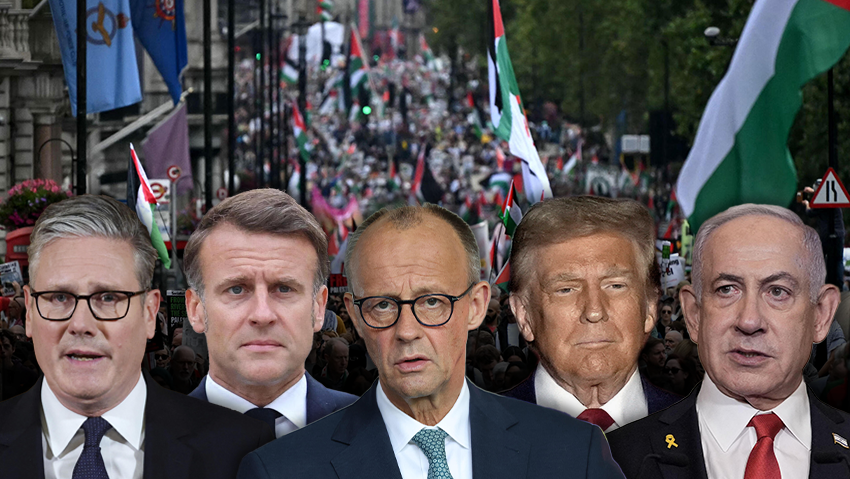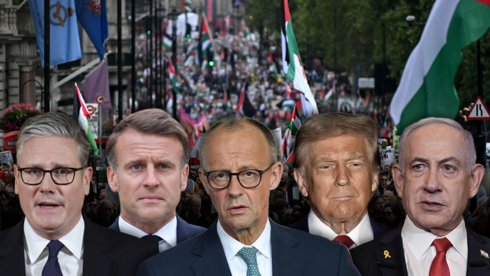1 View gallery


(Photo: JUSTIN TALLIS / AFP, AP Carlos Osorio, Oliver CONTRERAS AFP, Sarah Meyssonnier / POOL / AFP, Toby Melville, Pool Photo via AP, Sean Gallup/Getty Images)
These moves signal a break from the Trump administration’s approach which many European officials viewed as ineffective in reining in Prime Minister Benjamin Netanyahu who has waged war in Gaza for nearly two years. A confidential British “Eight-Point Plan” circulated to European leaders on July 29 by Jonathan Powell — national security adviser to Starmer and a key architect of the Good Friday Agreement in Northern Ireland — sought to revive peace efforts based on a two-state solution.
The day after Powell shared the plan, 22 Arab League nations endorsed its main objectives at a U.N. conference initiated by Paris and Riyadh. For the first time, the league demanded that Hamas disarm and relinquish control over Gaza.
European officials involved in discussions said the shift was driven by growing evidence of widespread hunger in Gaza, increased public demand for action and frustration with the Trump administration’s perceived abandonment of efforts to restrain Israel.
Britain’s evolving stance was influenced by an Israeli Knesset declaration supporting Israeli sovereignty over the West Bank which London condemned as a “blatant violation of international law” undermining peace prospects.
Germany, traditionally one of Israel’s closest allies given its history, surprised observers by joining the diplomatic push. While unlikely to recognize a Palestinian state itself, Chancellor Merz expressed determination to contribute to the effort. Shortly after Macron’s announcement, the three leaders jointly called for an end to the war, the release of hostages, Hamas’s disarmament, humanitarian aid access and a halt to Israeli annexation plans. They later described the situation in Gaza as “horrific.”
A reported recent phone call between Merz and Netanyahu ended with the German chancellor frustrated by Netanyahu’s insistence there was no hunger in Gaza and accusations that Hamas was stealing aid. Merz and Macron subsequently urged former U.S. President Donald Trump to pressure Netanyahu to allow more humanitarian assistance. Trump acknowledged the crisis on television saying, “There are children starving in Gaza… you can’t fake that.”
Days later, Starmer announced Britain would formally recognize a Palestinian state unless Israel ended the war and pursued a new course. Defense Secretary Ben Wallace echoed this position at the United Nations. The announcement surprised Berlin which believed Macron’s recognition was sufficient.
Canada soon joined the diplomatic shift announcing conditional recognition of a Palestinian state with other countries indicating readiness to follow suit.
Despite these efforts, Netanyahu has rejected the moves calling them “rewards for terror” and recently authorized a full-scale military operation to take control of Gaza.
Diplomats from Britain, France and Germany remain frustrated at the lack of U.S. engagement viewing Trump as the only leader capable of pressuring Netanyahu to change direction. They acknowledge that while Netanyahu is expected to reject these initiatives, trying remains preferable to inaction.
The Arab League’s unprecedented collective call for Hamas to disarm and transfer authority to the Palestinian Authority alongside support for a temporary UN peacekeeping mission in Gaza signals a potential new phase in the conflict’s diplomatic landscape.






